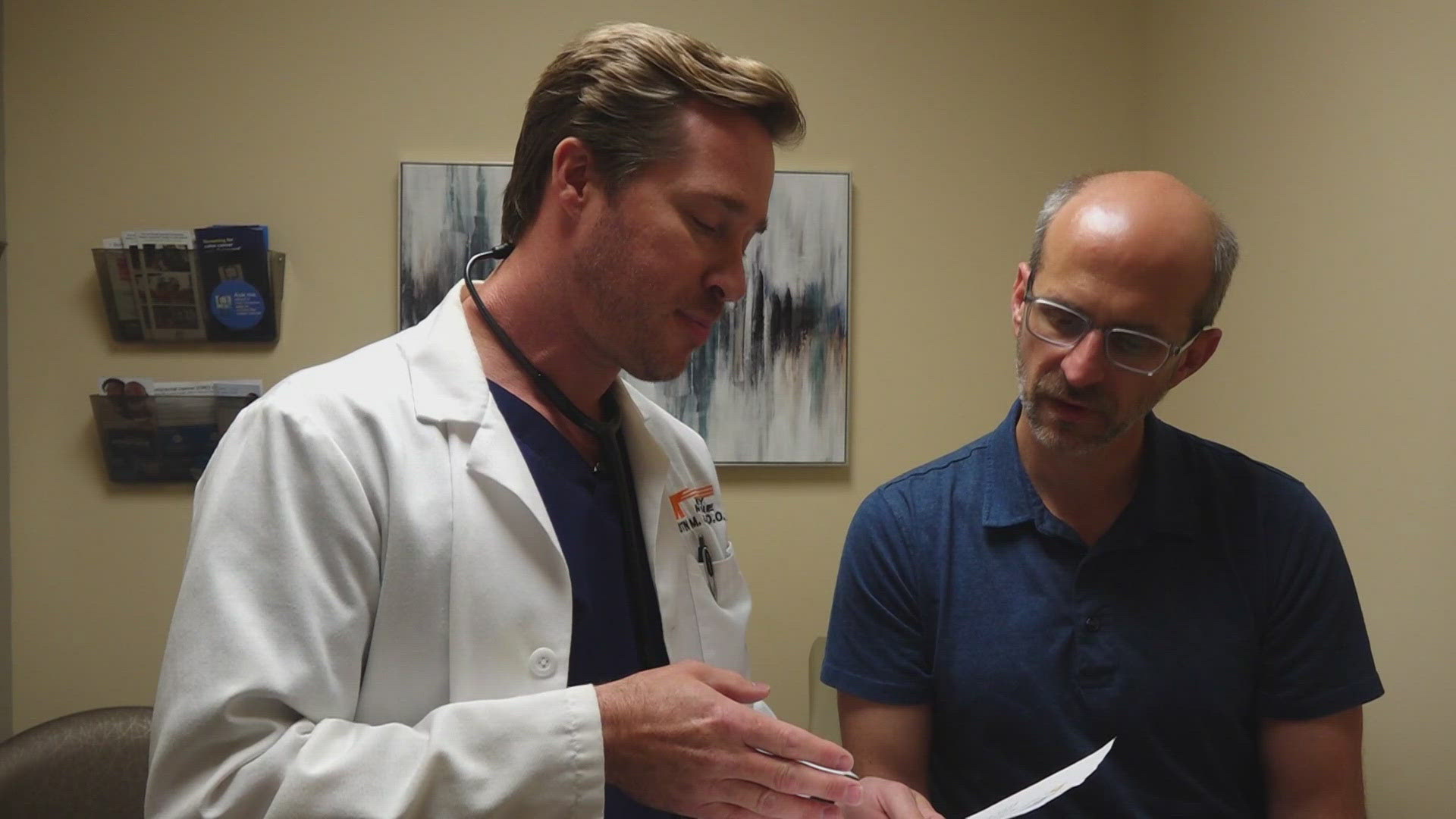KNOXVILLE, Tenn. — A survey by the Cleveland Clinic reported almost 75% of men would rather do household chores than get their regular check-up exams. Marty Hartsell echoed the sentiment and said he doesn't go to the doctor often.
"I'm never sick, but I do every three or four years. I get blood work, and that reassures me I'm okay," said Hartsell.
He isn't the only man like this. Statistics from the Centers for Disease Control and Prevention show men are less likely to seek preventative care services compared to women.
"I would imagine a lot of reasons why. We think in our teenage years, in our 20s years, that we're unstoppable," said Dr. Jenkins, a family physician for a clinic at the University of Tennessee Medical Center. "And while that's not necessarily true, that mentality can carry over."
He said the earlier people detect a disease or condition, the better. He also said men can be more at risk for some conditions like heart disease and some types of cancers.
"Based upon genetic factors, physiologic factors, there are different conditions that men are at higher risk for. Heart disease is one of the leading causes of death for our patients, and men are among the highest risk for that. The good news is that if we can evaluate and screen for the risk factors for heart disease, stroke, things like that, that we can help keep people out of trouble," he said.
He also said the screenings men may need depend on their ages, family histories and habits. He said social risk factors like smoking and excessive alcohol use can prompt physicians to screen for some conditions, hoping to ultimately find nothing wrong.
"Maybe there's substance use, additionally, mental health as well. There are some peripheral risk factors that can directly affect our health, and so primary care providers do an excellent job of screening for substance use disorders, mental health disorders, and can help you develop a plan to improve some habits that might be detrimental to your health," he said.
Hartsell said he credits his clean bill of heath to his lifestyle. He said he's been working out for the last 35 years. However, he also said he does have a family history of certain diseases.
"I got a family history of, I think, of some cancer in there, some Crohn's disease, high blood pressure," he said.
For men aged 18 to 39, it's recommended they get the following:
- blood pressure screening
- diabetes screening
- eye exam
- physical exam
- testicular exam
- cholesterol and heart disease prevention
- infectious disease screening
- immunizations
For men aged 40 to 64, it's recommended to get all the above and:
- colorectal cancer screening (men under 50 need to check with their physician)
- osteoporosis screening
- prostate cancer screening
- lung cancer screening
For men aged 65 and older, it's recommended to get all the above and:
- abdominal aortic aneurysm screening (for men between 65 and 75 who are smokers or have smoked)
- colorectal cancer screening (men over 75 should ask their physician if they need to continue the screenings)
- hearing test
Jenkins said anyone who doesn't remember the last time they had a check-up exam should probably schedule one.
"Think about your family, think about your friends, think about your community. We need men in our community to be as healthy and as at the top of their game as possible, and that doesn't happen by accident. Your primary care provider can help provide you with evidence-based, tailored screening tests and evaluations to keep you happy, healthy and safe. When men are healthier, their families are happier, they're healthier, and our community thrives," he said.

